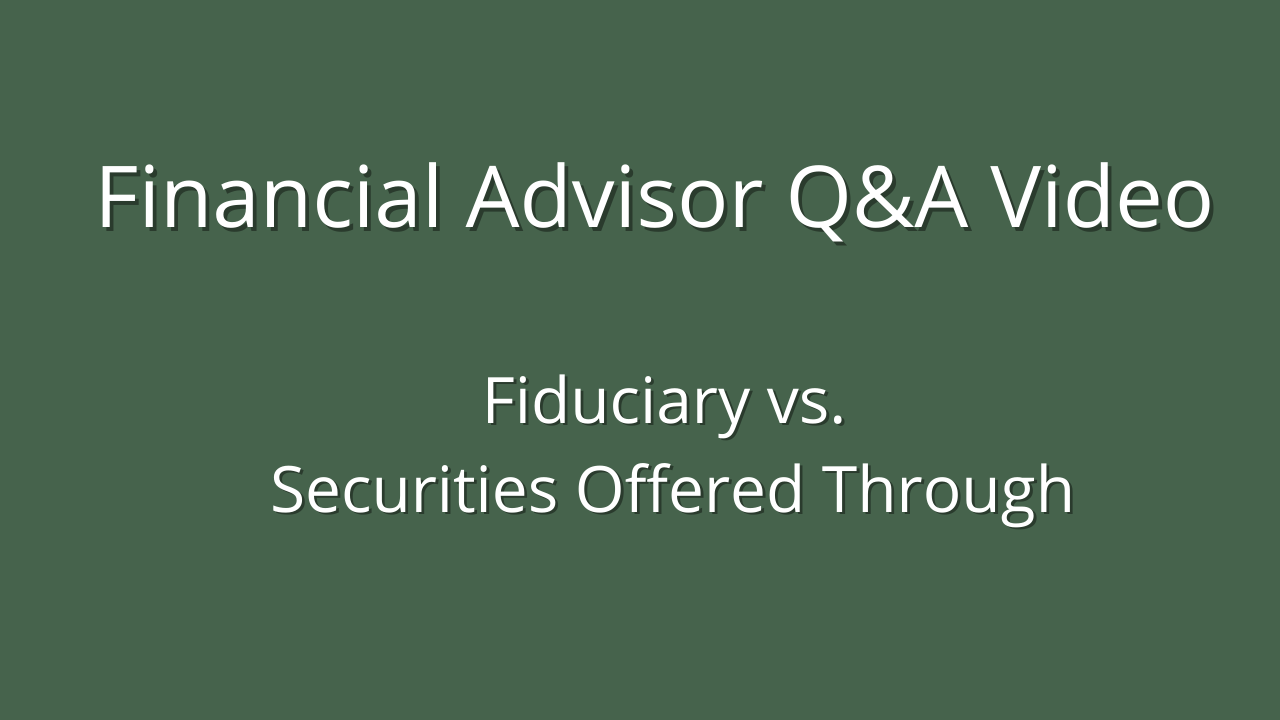Fiduciary vs Securities Offered Through? Q&A Video
Transcript of the video:
Hello my name is Lee Shertzer and I’m managing partner at Stewardship Advisors here in Mount Joy. I want to talk to you today about the difference between fiduciary vs a “securities offered through” firm.
I have worked in this industry for the last 35 years and gained a deeper and deeper understanding of this industry and its cost structures. It is with this information and understanding that we at Stewardship Advisors years ago made the decision to become Fee-Only fiduciary advisors. We realize we have a responsibility as stewards of peoples’ life work, their savings for their children, and for their future generations. We feel a huge responsibility – a fiduciary responsibility.
Now, I know there has been a lot of discussion about what is a fiduciary. So, let us first talk about that. A fiduciary is a person that has the responsibility of acting for another in situations requiring total trust, good faith, and honesty. Not all advisors are required to put you first; only financial advisors who are fiduciaries are required to act in the best interest of their clients.
According to the Securities and Exchange Commission, which regulates registered investment advisors, the fiduciary duty also entails acting with undivided loyalty and utmost good faith, providing full and fair disclosure of all material facts, not misleading clients, and avoiding conflicts of interest – such as when advisors profits more when a client chooses one investment over another. Those advisors that are not working under fiduciary standards work under a lower standard: a suitability standard of care.
A suitability standard does not require advisors to put their client’s best interest before their own, nor must they avoid conflicts of interest. If your advisor isn’t a fiduciary, he can steer you into products that put more money in his pocket, as long as the product is considered “suitable” for you.
For instance, when faced with two comparable investments, one of which has a higher commission, a fiduciary could not recommend the pricier investment because paying more in fees is not in the client’s best interest. An advisor held to the suitability standard, though, could recommend the more expensive product, providing it meets the lower standard of suitable for the client.
This brings us to another area of discernment for you, with any advisor you may be considering working with: looking at how your advisor is compensated. Generally, you pay for financial advice in 3 ways: advisor fees (for fee-only advisors), commissions, or a combination of fees and commissions (for what’s called fee-based advisors). If you want to be certain of the highest form of care, one might suggest that you should be looking for a fee-only advisor.
One way you can tell who is a fee-only advisor is by looking at the disclosures at the bottom or back of any presentation or advertisement. If it says something like “Securities Offered Through,” then you do not have a fee-only advisor that must put your interest first and act as a fiduciary. Instead, they must meet the standard of “best interest.”
Mark Brinser, a partner at our firm, has written an excellent article that you can find on our website. It explains in more detail the difference between fee-only advisors and advisors working with firms of securities offered through.
Watch out for these disclosures, because they are disclosing something vitally important for you.
Now, I hope this was helpful. If you have any further questions, feel free to contact me or our firm for more information. Thank you.
Like this article? Want to learn more about investing?
Check out our Investing Archives where we’ve compiled actionable insights to help you make smarter investments.
